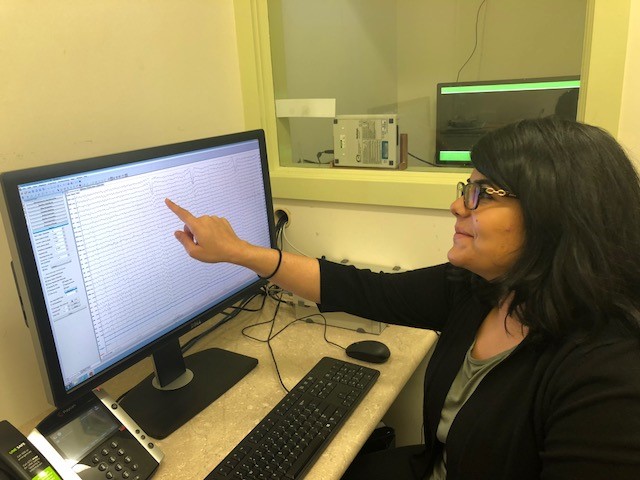PhD student Kimaya Sarmukadam has just entered the 2nd year of her research program with the BBRG. In her research Kim is examining the relationship between brain connectivity and sensory features in individuals with Austism Spectrum Disorder (ASD).
Sensory features, or atypical behavioural responses to sensory stimuli in the environment, are considered to be a key characteristic of ASD, affecting 90-95% of children and adolescents with ASD on a daily basis. By using electroencephalography (EEG) and social elements embedded with sensory information that individuals with ASD may have challenges with on a daily basis, Kim’s research explores the effects of sensory features upon brain connectivity in children and adolescents with ASD. Learning to process, interpret and analyse EEG data has been a large part of Kim’s project to date.
Kim’s interest in ASD and functional assessment has seen her travel from her home in Alberta, Canada, where she completed her BA (Psych), to Bond University, in QLD Australia, where she completed a Masters in Functional Behaviour Assessment (ASD). Taking up her current PhD position at the University of New England, Armidale, has allowed her to continue to expand her knowledge and skills in behavioural science and neuroscience, especially in the field of ASD.
Alongside her PhD, Kim also works as a research assistant for the BBRG ASD-IT Club, and has previously talked about her involvement in the program here. Coordinating this program, plus working on her PhD research keep her busy, but Kim still manages to find time to explore the New England region, enjoying hiking, baking, and relaxing with some Netflix. She also loves to travel, and especially enjoys the opportunity to return to Canada and visit family.


